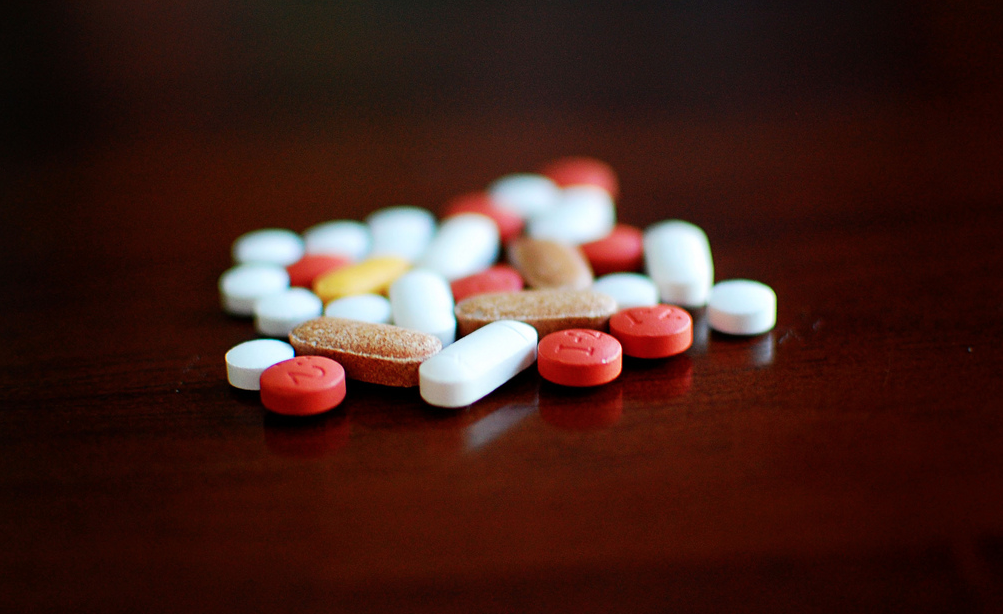Antibiotics are at the heart of much of medicine. But for at least 15 years, doctors and researchers have been sounding the alarm about the increasing problem of antibiotic-resistant bacteria that threatens to undo decades of progress and return modern medicine to the "pre-antibiotic era."
Exacerbated by a dearth of investment in new antibiotic development and production from pharmaceutical companies and a persistent over-use of existing antibiotics in everything from medicine to agriculture, the problem has garnered attention from the United Nations, the World Health Organization and the Centers for Disease Control and Prevention.
Houston, with its diversity, large population and expansive medical center is already one of the hot spots for antibiotic resistance, where researchers and doctors are already seeing cases of drug-resistant bacteria in high numbers. But researchers are hopeful the city can also become a leader in the fight against it.
"We have all the organisms afflicting all the hospitals in the country and in the world," explained Yousif Shamoo, a biosciences professor who heads his own laboratory and serves as the vice provost at Rice University. With such a large patient volume of people effected by antibiotic resistance, he said, "we see Houston as an ideal location, unfortunately, to do this kind of work."
Antibiotics were, Shamoo said, the most significant discovery in human medicine -- and they still are. The drugs were so successful, that Shamoo remembers looking through old journal articles declaring the end of infectious disease. "We're a victim of our success unfortunately," he said.
In fact, the very antibiotics that are now under threat of becoming less effective were part of that process. "It is difficult to imagine undertaking today's surgical procedures, transplantations, cancer chemotherapy, or care of the critically ill or HIV-infected without effective antimicrobial agents," wrote Cesar Arias, a professor and practicing doctor with the University of Texas Health Science Center at Houston, in a 2009 journal article on the topic.
The challenge is that some antibiotic drugs that combat one bacteria essentially clear the way for another to fill the void. And bacteria targeted by drugs constantly evolve to ensure their own survival making them ever-more challenging to combat. "You can't win, because evolution doesn't stop," said Shamoo, but, "I have a lot of faith with the right kind of incentives and research, you can stay ahead."
To that end, Cesar Arias launched the Center for Antimicrobial Resistance and Microbial Genomics, based out of the University of Texas's McGovern Medical School, and started a series of conferences, including the Antibiotic Resistance Symposium hosted by the Gulf Coast Consortia at Rice University, meant to engage researchers, doctors and the city in an ongoing effort.
Shamoo serves on the steering committee for the new center and said it represents an unprecedented level of collaboration between research institutions, hospitals and local government.
"I'm a techno-optimist," said Shamoo. "As a species, we've always thought our way out of our problems."
As cases of antibiotic resistance began to emerge over the past several decades, it became clear that the ubiquity of antibiotics had negative consequences. "Twenty years ago or less, you had soaps that promoted antibacterial [ingredients]," said Arias. "We all thought that getting rid of bacteria was a good thing. We're finding out that's among the worst things you can do." That's because antibiotics tend to kill more sensitive bacteria, but can leave behind resistant germs, according to the Missouri Department of Health and Senior Services. "Repeated and improper uses of antibiotics are primary causes of the increase in drug-resistant bacteria," according to the department.
The problem has grown over the years, as pharmaceuticals, with few financial incentives to continue to produce new antibiotic drugs, have backed away from production. Meanwhile, antibiotic use has spread beyond the doctor's office.
Today, antibiotics are commonly used in livestock production, for example, to help increase yield and combat often unsanitary conditions. "It's a huge deal because we get a low concentration (of antibiotics) through the food chain," said Arias. And it also means that making significant changes in antibiotic use will come with big economic costs as well. But drug resistance has its own, sometimes fatal costs, and countries like Denmark have banned non-medical uses of antibiotics in livestock production.
Medical ailments that used to be simple to treat are becoming more complicated. For example, urinary tract infections, said Arias, were once easily treated. Today, some infections prove resistant to antibiotics. In those cases, "they cannot be treated properly and eventually get to the bloodstream and that can cause really bad things," he said, including death. Texas Department of State Health Services notes, "People infected with antimicrobial-resistant organisms are more likely to have longer, more expensive hospital stays, and may be more likely to die as a result of the infection."
Nationally, the CDC estimates that, "at least 2 million people become infected with bacteria that are resistant to antibiotics, and at least 23,000 people die each year as a direct result of these infections." But Arias believes those are conservative numbers.
"It's never an acceptable rate if it's your child," said Shamoo. "There's nothing in the medical field that doesn't require antibiotics to be successful," he added. "If we get to the point where they're not successful at a high rate, we go back to this world where everything is life threatening."
The solutions are both simple and complicated. Getting nurses and doctors to be more diligent about washing their hands between patients has decreased infection rates, said Shamoo, and thus reducing patient exposure to potentially drug-resistance bacteria and decreasing their chance of needing antibiotics for an infection. Other new types of pharmaceuticals also hold promise.
And a key to the success: collaboration. "Nobody has the resources of data to go at it alone," said Shamoo.

